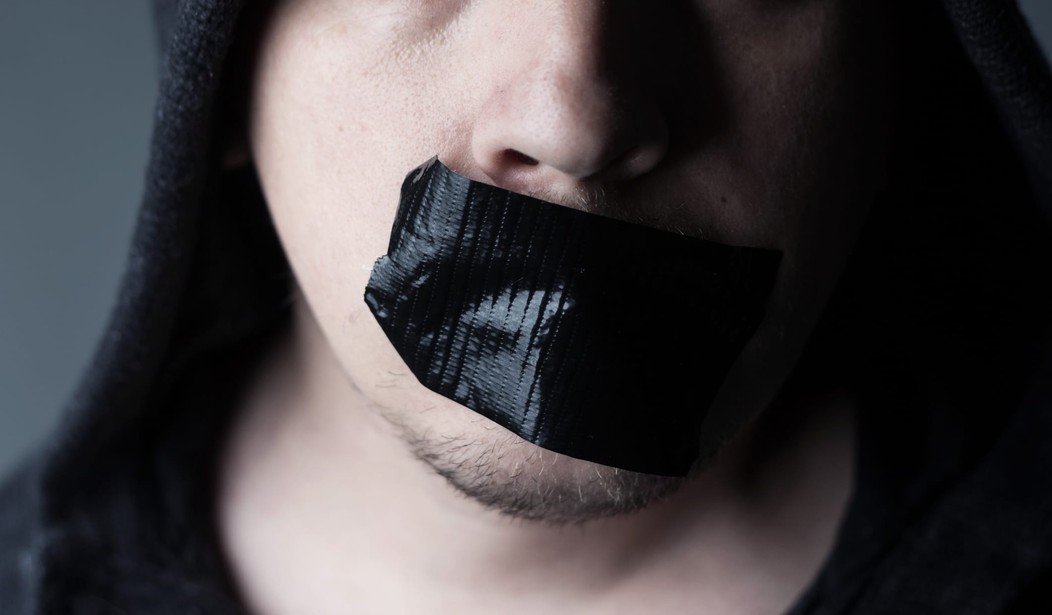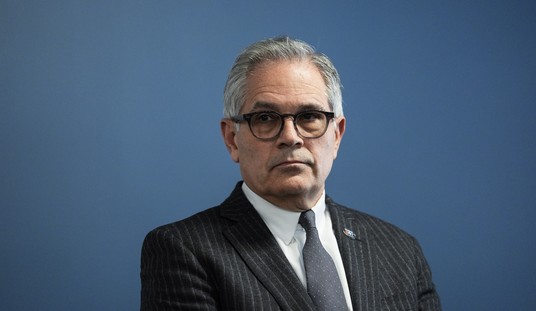“People keep saying you shouldn’t be penalized for old opinions. You shouldn’t be penalized for your opinions now! You have a perfect right to disapprove of homosexuality or heterosexuality or anything else. Censorship won’t create a world of tolerance, just a world of lies.” – Andrew Klavan
Deplatforming is just censorship by another name and it’s the hottest trend in Silicon Valley. Companies like Twitter, Facebook, Apple, Cloudflare, Patreon, GoDaddy, Paypal, YouTube, Spotify, and Amazon, among others, have kicked people off their services because they don’t like their views. This would be an issue of minor importance except for the fact that many of these services are monopolies that have an outsized impact on whose views are allowed to be heard or monetarily compensated in America — and whose views are not. In fact, the greatest potential threats to free speech in America, after the government, are corporate monopolies. The power we have allowed them to accumulate is dangerous to your freedom. However, this is not a column encouraging Congress to break up monopolies; it’s a column explaining why these monopolies and their less powerful brethren in the tech industry are making a huge mistake by embracing deplatforming.
1. It increases the mainstream appeal of those who are deplatformed
Although they are very different people, both Ben Shapiro and (for a while) Milo Yiannopoulos became rock stars on the Right specifically BECAUSE they were deplatformed by college campuses. The most positive comments I ever heard about Laura Loomer on the Right — by orders of magnitude — came after she was unjustly deplatformed by Twitter and chained herself to the door of the company’s corporate headquarters. Similarly, many mainstream conservatives who detest Alex Jones (myself included) spoke up in his defense after a number of tech companies banned him for his views. So, does deplatforming people reduce their power to be heard? Absolutely, but it also often increases their appeal in places where they are not deplatformed.
2. There is inevitably enormous hypocrisy involved
What is the justification for deplatforming prominent white nationalists like Richard Spencer while turning a blind eye to their black mirror images on the Left who spew the same sort of hatred that they do, except at white people? How does Antifa get a free pass on platforms like Twitter while the Proud Boys’ members, whose violence is essentially limited to defending themselves from Antifa, get kicked? How do you justify kicking anybody off your platform for their views when bitterly anti-Semitic loon Louis Farrakhan is allowed to use it? For every “villain” on the Right side of the spectrum who gets deplatformed, there are parallel “villains” on the Left who are given a free pass by the same platforms. That hypocrisy does not go unnoticed and ultimately it HELPS LEGITIMIZE the views of the people who are banned. After all, if they can quite CORRECTLY make an argument that their ideological counterparts on the other side aren’t being banned and they are, then that’s an indication that the problem isn’t their ideas, it’s their ideology. In other words, this hypocrisy helps drag their ideas toward the mainstream.
3. It makes everyone involved mentally flabby
When you deplatform someone, not because he’s broken the rules on your service but because you disagree with his views, you are essentially admitting that you are intellectually incapable of handling his arguments. Worse yet, because people are not regularly exposed to those bad arguments, they become less capable of effectively refuting them. On the other hand, I would argue that one of the biggest reasons that conspiracy theories have spread so much faster in recent years is that mainstream outlets simply refuse to address them at all. So instead, these bad ideas are debated in echo chambers among true believers instead of getting skeptics into the conversation. The way to beat bad ideas is not by pretending that they don’t exist; it’s by confronting them with good ideas. No, you won’t convince every person that an obviously bad idea is a bad idea (see socialism, for example), but reasonable people with open minds will be persuaded by good arguments – if they are allowed to hear them.
4. The slippery slope came true
The ideological bannings on the social media websites started with outright “racists.” Even the multiracial Proud Boys, who specifically tell racists that they’re not welcome in their membership applications, were untruthfully branded as a hate group, condemned for being willing to defend themselves if attacked by Antifa and banned. Then the target became conspiracy theorist Alex Jones. Some of us predicted that it was a slippery slope…
Twitter’s ban of Alex Jones because they don’t like his behavior when he’s off of their website is incredibly creepy in an Orwellian sort of way and even people that hate his guts should be very concerned about it.
— John Hawkins (@johnhawkinsrwn) September 7, 2018
Little did I know how slippery it was. A week after I did a GoFundMe campaign that raised $611,000 for Judge Kavanaugh’s family, both the Right Wing News Facebook page — which I no longer ran but which was associated with me — and the Twitter Right Wing News account, which I did still control, were permanently banned. Bizarrely, although my personal accounts were not pulled by Twitter or Facebook, various other people associated with the Right Wing News Facebook page, like my former employee Terresa Monroe-Hamilton, were also permanently banned from Facebook. Neither Facebook nor Twitter would ever reveal a specific post or action that led to any of the bannings. Facebook even worked with the New York Times on a story about all the rule-breaking that was supposedly going on that prominently mentioned me, but was unable to point to any actual examples. I believe that’s because there were none. It was all about going after someone who was being effective for the other side rather than violating their terms of service.
Of course, I am one person out of many whom this has happened to over the last year. With Laura Loomer, Twitter simply picked a generic post that could have been written by a million people, falsely claimed she broke its terms of service, and banned her. Similarly, after Jesse Kelly was kicked off Twitter and told he was permanently banned, a couple of Republican senators mentioned it and suddenly, his account was restored. An attempt was made to deplatform Gab (which meant shutting down its website completely) simply because Gab believes in free speech and allows it on its platform.
Fortunately, the bad publicity, fear of legislation and sliding stock prices have proven to be a check on this slide, because without them, the only guiding principle of these tech companies would seem to be, “Who can we get rid of that has been making an impact without getting too much of a backlash?”









Join the conversation as a VIP Member